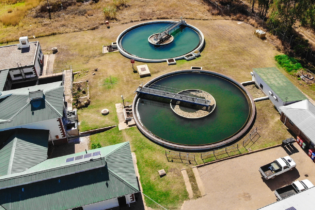
Kiara Nirghin has developed a low-cost, biodegradable, superabsorbent polymer to help farmers during the drought
Nirghin explains her process:
“Orange peels contain over 64% of polysaccharide making it a candidate for biodegradable polymer. However, the polymer has to be cross-linked usually requiring chemicals such as Sulphur and Hydrochloric acid. I have explored an organic cross-linking method using UV light and heat. “Emulsion polymerisation was then conducted by using natural oil found in avocado peels and adding it to boiled orange peels. The product is then left in the sun, utilising photo polymerisation. The product should be able to retain large amounts of water and combat the effects of drought on crops by retaining soil moisture, whilst still recycling waste products of the juice manufacturing industry.” Agri SA requested over $1 billion in government subsidies to help farmers through the crisis. This innovative product could prove useful in assisting farmers at a relatively low cost.





